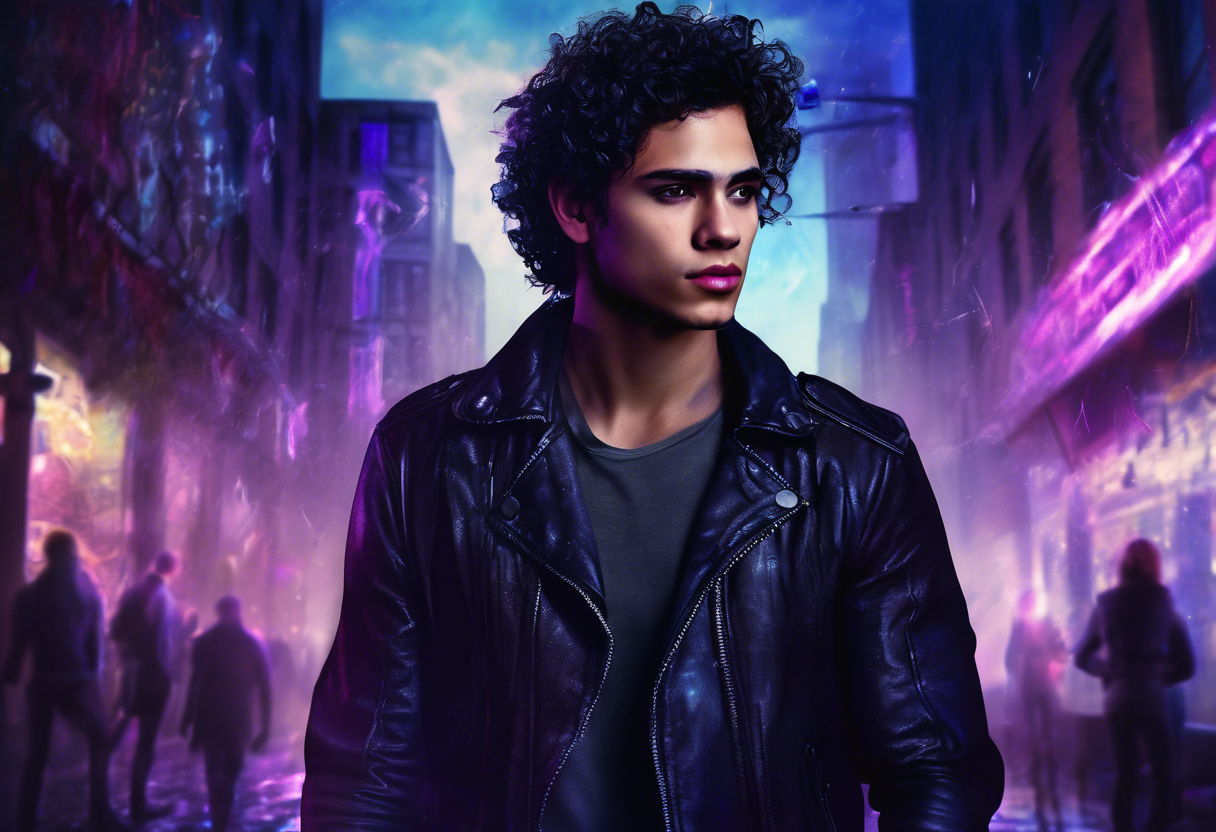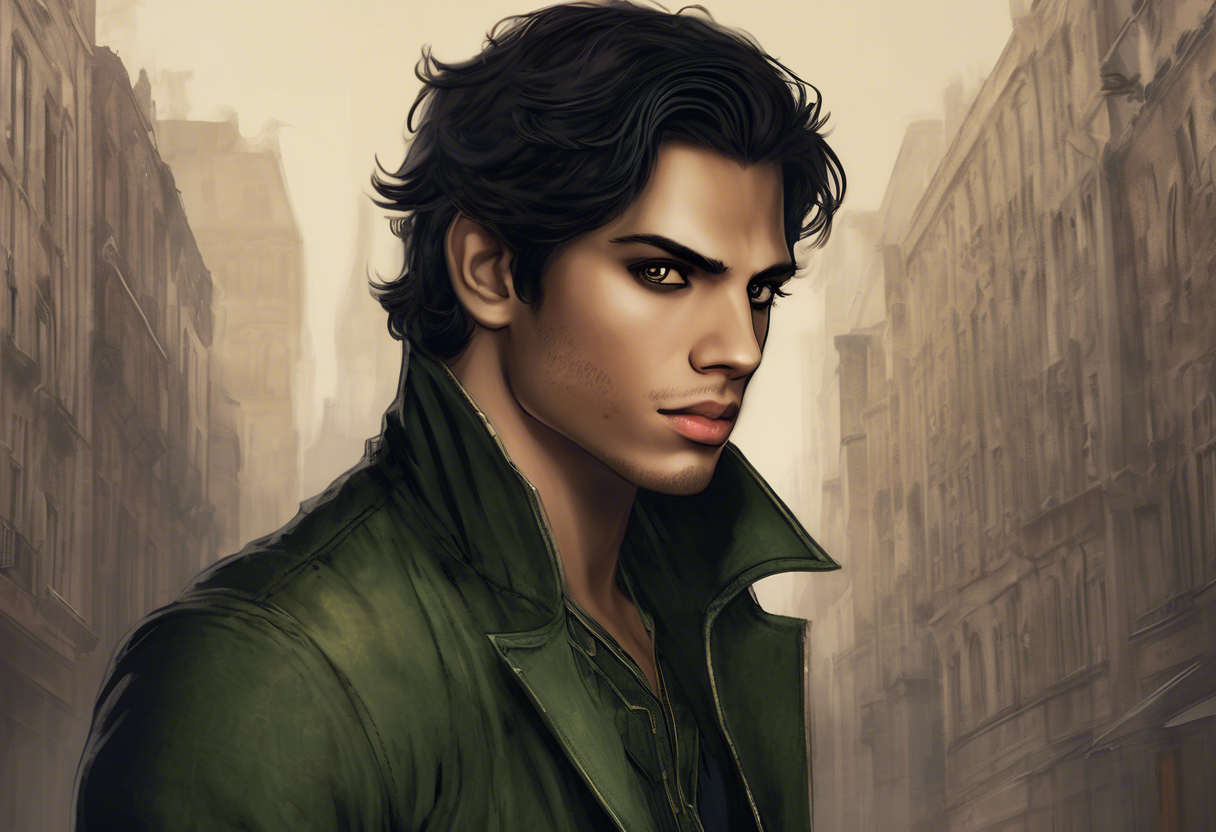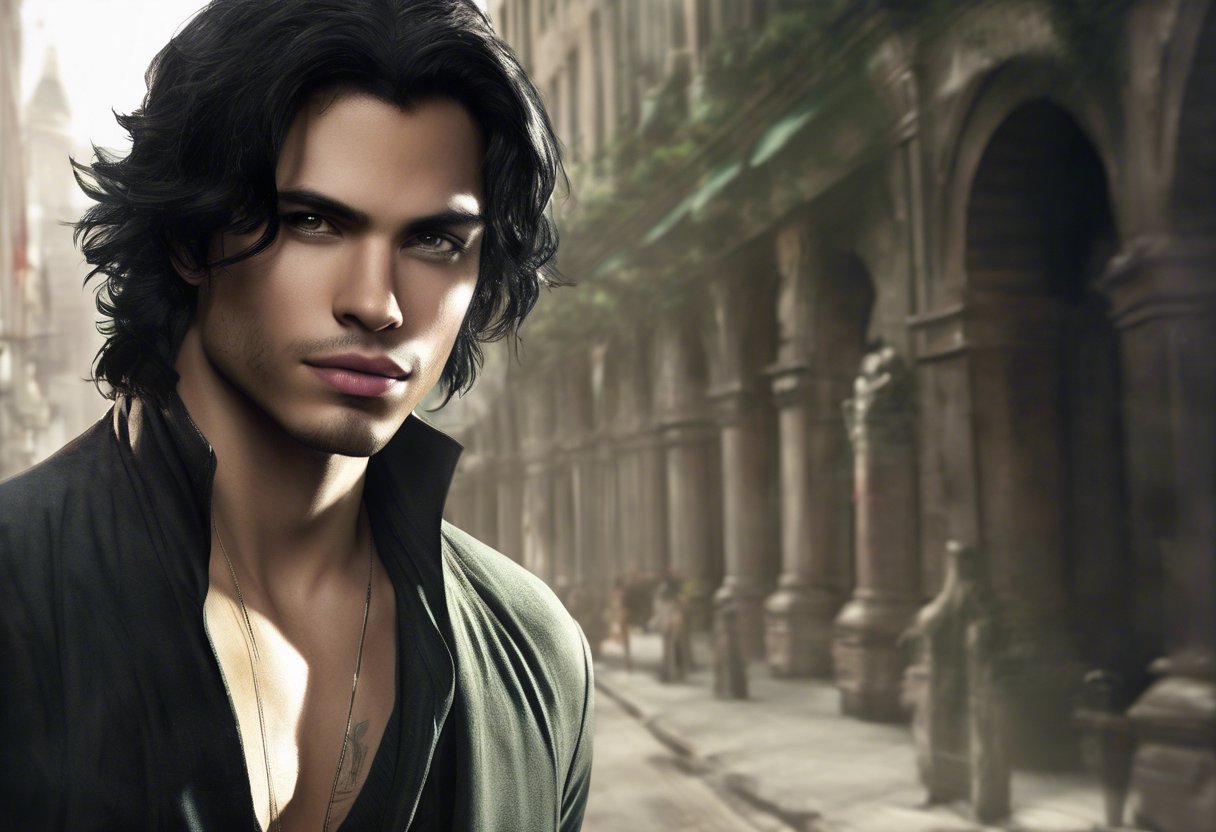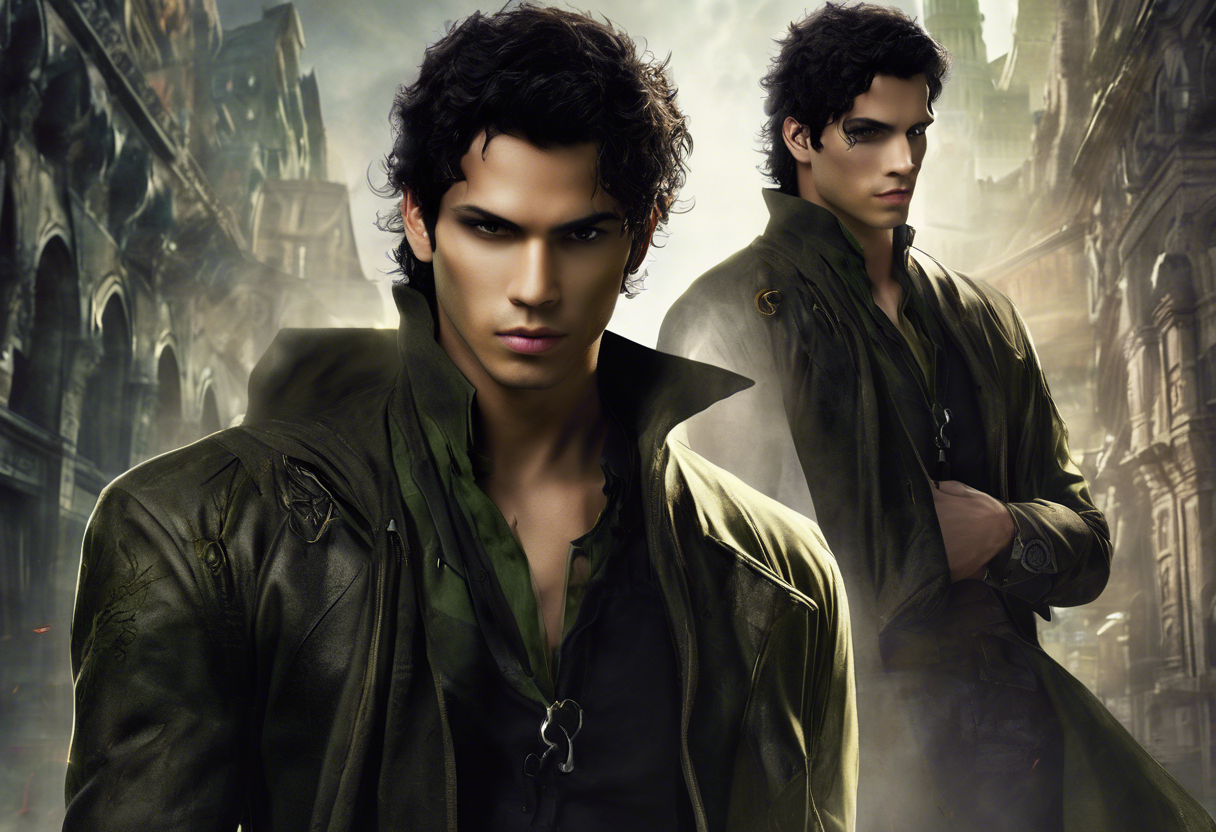Contents
Raphael Santiago: A Complex Figure in The Mortal Instruments
Introduction
Raphael Santiago is a pivotal character in Cassandra Clare’s acclaimed series, The Mortal Instruments, which is part of the broader The Shadowhunter Chronicles. Born to Guadalupe Santiago and an unknown father, Raphael’s life takes a dramatic turn when he is transformed into a vampire, eventually becoming the leader of the Brooklyn vampire clan [2][4].
Raphael’s backstory is marked by his strict Catholic upbringing, which contrasts sharply with his later life as a vampire. This dichotomy adds depth to his character, reflecting the themes of identity, morality, and the struggle between faith and the supernatural. His role in the narrative is multifaceted, involving complex relationships with other characters and significant contributions to the plot’s progression.
Role in the Story
Raphael’s storyline is intertwined with several key events in The Mortal Instruments. Initially, he is introduced as the temporary head of the vampires while the actual leader is absent. His encounter with Simon Lewis, who is temporarily turned into a rat and then bitten by Raphael, sets off a chain of events that significantly impact Simon’s character development [4].
In City of Bones, Raphael’s lair at the abandoned Hotel Dumort becomes a critical location where Simon seeks answers about his potential transformation into a vampire. Raphael’s actions here are crucial; he saves Simon from immediate death and later plays a role in Simon’s decision to become a vampire to save his life [4].
Throughout the series, Raphael’s interactions with Simon, Clary, and other characters reveal his calculating and often ruthless nature, yet also hint at a deeper sense of loyalty and honor. His leadership of the vampire clan involves navigating the intricate politics of the Shadowhunter world, making him a key figure in the conflicts that arise.
Character Analysis
Raphael Santiago is a complex character with a rich personality profile. His motivations are often driven by a desire for power and the need to protect his clan, which sometimes puts him at odds with the Shadowhunters. Despite this, he exhibits a certain level of integrity and adherence to his own moral code, which makes him a compelling and relatable character.
One of Raphael’s defining traits is his pragmatism. He is willing to make tough decisions and form alliances that benefit his clan, even if it means working with enemies. This pragmatism is balanced by a deep sense of loyalty to those he cares about, particularly his clan members.
Raphael’s strengths include his strategic thinking and leadership abilities, which are essential in the treacherous world of vampires and Shadowhunters. However, his flaws, such as his tendency to be ruthless and his occasional disregard for human life, make him a nuanced and multidimensional character.
Themes and Symbolism
Raphael Santiago embodies several themes that are central to The Mortal Instruments. One of the most significant themes is the struggle between good and evil, which is not always clear-cut. Raphael’s character challenges the binary notion of morality, showing that even those who might be considered ‘evil’ can have redeeming qualities and act with a sense of justice.
Another theme is the concept of identity and how it is shaped by one’s circumstances. Raphael’s transformation from a devout Catholic boy to a vampire leader highlights the fluidity of identity and the choices one makes in response to life’s challenges.
Raphael also symbolizes the power dynamics within the supernatural world. As a vampire leader, he navigates the complex hierarchies and alliances that define this world, often finding himself at the crossroads of different factions’ interests.
Cultural Impact
Raphael Santiago has had a significant cultural impact, particularly within the fanbase of The Mortal Instruments. His character has been well-received for its complexity and the depth he adds to the narrative. In the television adaptation Shadowhunters, Raphael was portrayed by David Castro, bringing the character to life in a visual medium and further cementing his place in popular culture [5].
The character’s influence extends beyond the series itself, contributing to the broader discourse on vampires in literature and media. Raphael’s portrayal challenges traditional vampire stereotypes, offering a more nuanced and humanized version of these creatures.
Critical Reception
Critics and audiences have generally praised Raphael Santiago for his complexity and the layers he brings to the story. His character development is often cited as one of the strengths of the series, as it adds depth and realism to the narrative.
However, some critics have noted that Raphael’s character can sometimes feel inconsistent, particularly in his interactions with other characters. Despite this, his overall impact on the series has been positive, with many readers appreciating the moral ambiguity he represents.
Legacy
Raphael Santiago’s enduring appeal lies in his multifaceted nature and the significant role he plays in The Mortal Instruments. His character has inspired other works and character archetypes in the fantasy genre, particularly in the realm of urban fantasy and supernatural fiction.
In contemporary discussions, Raphael’s character continues to be relevant, especially in conversations about morality, identity, and the complexities of human (and supernatural) nature. His legacy is a testament to Cassandra Clare’s skill in creating characters that resonate deeply with readers.
References
- https://shadowhunterstv.fandom.com/wiki/Raphael_Santiago
- https://www.pinterest.com/pin/c-o–722546333946496214/
- https://www.librarything.com/character/Raphael+Santiago
- https://en.wikipedia.org/wiki/List_of_The_Mortal_Instruments_characters
- https://www.tvmaze.com/characters/230254/shadowhunters-the-mortal-instruments-raphael-santiago







